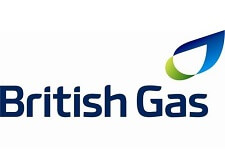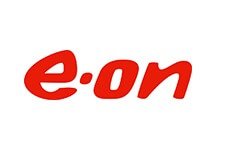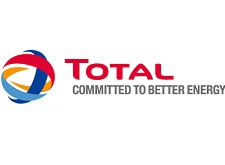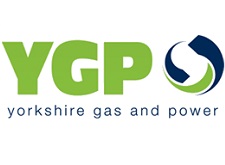The Business Energy Suppliers, who are they?
The ‘Big 6’ are the ‘traditional’ big energy suppliers we all know…
The same 6 suppliers who dominate the domestic market do the same, though to a lesser degree in the business market.
How did they get to be the Big 6?
Put simply they have grown out of or have been acquired from the old regional electricity and gas boards of the mid to late 20th century.
Of course they look very different now from those nationalised organisations and are under both foreign and domestic ownership however their roots can be clearly traced back to the pre-privatisation era.
We can broadly summarise the Big 6 energy suppliers as being ‘vertically integrated’ meaning that they own both generation capacity and a retail business or in other words they generate the energy that they then sell on.
This means they can make money on both the energy they generate and the energy they supply.
Additionally they can de-risk their own supply business by providing it with the generation volume it needs so they don’t have to trade in the volatile wholesale market.
Many people outside of the Big 6 do not like this model, as it is not seen as transparent.
One major concern is ‘the transfer price’, or the price the supply arm ‘pays’ to the generation arm for the energy provided. The level of this is not clear. As such it is difficult to ascertain the true profitability of each arm and as a result market watchers, commentators and the regulator Ofgem get jumpy.
Additionally the model is seen as detrimentally impacting the liquidity of the market. This is because rather than selling their generation output to the market thereby enabling all-comers to ‘access’ this product it is retained ‘in-house’ solely for the use of the retail arm.
Non-Big 6 Suppliers
The business energy market has significantly more ‘players’ or suppliers in it than does the domestic market.
Because the business market covers all shapes and sizes of commercial operations it is much more common to see niche and growing suppliers alongside the traditional Big 6.
The smaller suppliers (relative to the Big 6) all contribute to the wide variety of options in the non-domestic energy market.
Admittedly not all suppliers are suited to all customers. Some focus solely on gas, some only on very large users and some focus entirely on renewable energy, however the level of choice in the market is significantly higher than in the domestic market when it comes to both numbers of suppliers and the prices and products on offer.
Indeed contrary to popular belief the products, service and offerings of the suppliers vary quite significantly as do their ‘appetites for risk’.
It isn’t all about price of course as even the cheapest headline rate will become expensive very quickly if there are bad estimations on the account or if you have to spend time on the phone trying to sort out billing issues. So it pays to know that your supplier offers both a good deal AND has the ability to service your needs properly.
As a business energy customer you don’t even need to worry whether your chosen supplier is the latest kid on the block or the oldest institution, in the event of (rare) failure, all suppliers and customers are covered by a mechanism called ‘supplier of last resort’ whereby your supply and contract will be picked up by another supplier so your energy will continue to flow unhindered even if your supplier doesn’t.
Suppliers, who to choose?
So the ‘Big 6’ vertically integrated energy businesses are inherently unfair and new entrant, smaller, independent and growing suppliers are models of virtue?
You would think so from some of the commentary in the media and industry and at times the ‘Big 6’ make it difficult to argue with their viewpoint but that is an over simplistic and unhelpful picture which will only limit the options for a customer when they enter the business energy market.
By and large the ‘Big 6’ were borne out of a monopoly market where owning everything from the pipes and wires to the high street shops ‘selling’ electricity and gas was the standard model.
Although the ownership of these businesses has changed, firstly into private hands and latterly through multinational consolidation the fundamental structure of the businesses has not.
The owners of these businesses have invested in and grown them from their immediate post privatisation positions.
Of course the ‘Big 6’s whole reason for being is a commercial one and their intent is purely return on investment for the shareholders but they have invested in and created businesses that are in a position to reap the rewards of the structure they inherited.
When it comes to small, new entrant, independent and growing suppliers it is worth recognising that in contrast to the ‘Big 6’ these businesses can and do operate to different commercial and ethical motives. That isn’t to say they are better, it is just to say that unencumbered by legacy positions they are able to create a business born and raised in a different era.
As such it would be as remiss to denigrate the vertically integrated ‘Big 6’ suppliers as it would be to shower unqualified praise on small, new, growing independent suppliers. Both are equally able of undertaking excellent activities as well as less commendable ones.
The reality is however that most of the small, new, growing and independent suppliers have been drivers of innovation in the market. They have needed to be in order to compete with the ‘Big 6’ on something other than portfolio size. The most successful of these have produced a niche solution that separates them from their competitors whether it is through green energy, smart metering, flexible energy contracts or simply a more transparent and customer centric approach.
There are however some that have got it wrong, investing too little in their customer support and too much in their customer acquisition leading to a poor user experience.
Fundamentally every supplier has a role to play in the market, the ‘Big 6’ have taken the lead of smaller suppliers and become more innovative, suppliers still get it wrong, and some perennially lag behind the rest but choice is very real out there and the benefit of choosing correctly can add massively to the profitability and cash flow of a business.
If you’d like to know more about how your business can benefit from engaging in the energy market call us on 0800 051 5770, we’d love to hear from you.















